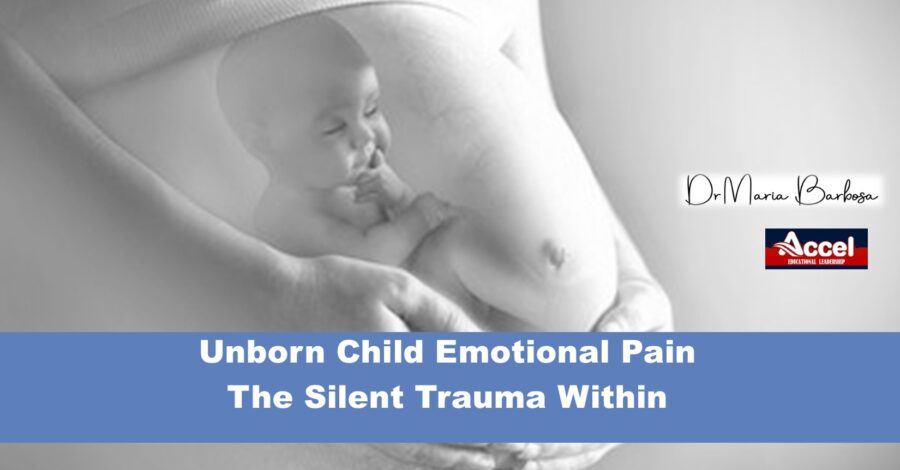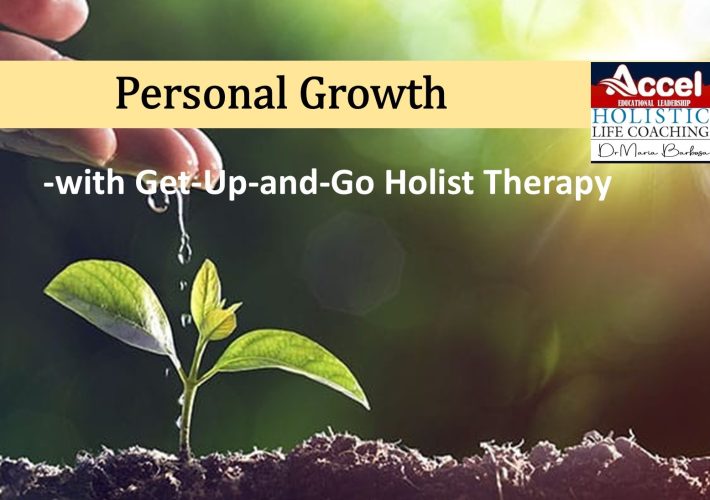The Silent Trauma Within
The journey of an unborn child begins with the promise of love, warmth, and security. However, not all prenatal experiences are filled with positivity. Rejection by the mother, siblings, or outsiders can cast a shadow, leading to emotional pain that echoes throughout a lifetime.
- The decision to undergo an abortion, whether a conscious choice by the mother or imposed by external pressures, the unborn child will start to have feeling of abandonment. Abortion has profound implications on the unborn child, inflicting a silent trauma that resonates within the confines of their existence.
- The impact of silent trauma on an unborn child can be profound and far-reaching. When the developing fetus is subjected to emotional distress, whether due to factors like the mother’s negative emotions, external stressors, or the decision to terminate the pregnancy, it can have lasting consequences on the child’s emotional and psychological well-being.
- This early exposure to trauma may contribute to difficulties in forming trusting relationships, issues with emotional regulation, and the development of negative thought patterns.
- Additionally, the unborn child may carry these emotional scars into postnatal life, potentially influencing their overall mental health and interpersonal interactions. Understanding and addressing this impact is crucial for fostering the emotional well-being of individuals from the earliest stages of life.
“All mother’s negative emotions would be transmitted to the unborn child.”
The Absence of Love, Warmth, and Security in Childhood: However, when these essential elements are missing, it can result in an adult who needs to create an adaptive personality to cope with emotional gaps. During the prenatal phase, the lack of love, warmth, and security can create an emotionally unstable foundation. This can lead to significant challenges when facing the complexities of adulthood.
Challenges in Adulthood: Adults who faced a shortage of love during gestation may experience difficulties in establishing and maintaining healthy relationships. The initial emotional deprivation may manifest in trust issues and in how they relate to others.
Impact on Mental Health
The formation of an adaptive personality can also influence mental health. Anxiety, depression, fears, failure, helplessness, lost, hopelessness, defensiveness and other disorders can be triggered by the lack of a solid emotional foundation during the prenatal phase.
It’s important to note that individuals can exhibit a range of traits and symptoms, and the impact of personality disorders on emotional scars varies from person to person.
The most common personalities disorders associate with emotional scars in adults are:
Borderline Personality Disorder (BPD):
- Characteristics: Intense and unstable relationships, impulsivity, distorted self-image, and frequent mood swings.
- Impact on Emotional Scars: Individuals with BPD often struggle with chronic feelings of emptiness, fear of abandonment, and may experience intense and rapidly shifting emotions. The tumultuous nature of their relationships can leave lasting emotional scars.
Antisocial Personality Disorder (ASPD):
- Characteristics: Disregard for others’ rights, deceitfulness, impulsivity, irritability, aggression, and lack of remorse after harming others.
- Impact on Emotional Scars: Individuals with ASPD may engage in manipulative and harmful behaviors, leaving those around them with emotional scars stemming from betrayal, exploitation, and the disregard for their well-being.
Avoidant Personality Disorder (APD):
- Characteristics: Social inhibition, feelings of inadequacy, hypersensitivity to negative evaluation, and avoidance of social interaction.
- Impact on Emotional Scars: Adults with Avoidant Personality Disorder may struggle with forming and maintaining close relationships, leading to feelings of loneliness and rejection, contributing to emotional scars related to social connections.
Dependent Personality Disorder:
- Characteristics: Excessive need to be taken care of, submissive behavior, fear of separation, and difficulty making decisions independently.
- Impact on Emotional Scars: Individuals with Dependent Personality Disorder may experience emotional scars related to an overreliance on others for decision-making and a constant fear of abandonment, contributing to a diminished sense of self-worth.
Understanding Unborn Child Emotional Pain
The notion that an unborn child can experience emotional pain might seem elusive, but research suggests otherwise. The emotional state of the mother, interactions with siblings, or external factors can significantly influence the unborn child’s emotional well-being.
Baby Hormonal and Emotional Disorders: The impact of rejection extends beyond emotions, affecting the baby’s hormonal and emotional balance. Prenatal experiences contribute to the development of disorders that may manifest later in life.
Preventing Unborn Child Emotional Pain: Creating a positive emotional environment during pregnancy is crucial. Nurturing a sense of security and love can shield the unborn child from the potential negative consequences of rejection.
“I feel like I am a mistake, born into this world.”
Navigating the Persistent Feeling of Being a Mistake: Challenges for men however many Special Women in Adulthood can bring forth a constant and overwhelming feeling that their entire existence is a mistake, with the struggle of not fitting into societal norms. This emotional burden can have profound and lasting effects on their mental and emotional well-being.
With the Get-Up-and Go Holist Therapy, Dr. Maria Barbosa can guide you through and provide assistance in addressing your traumatic events and emotional pain.
Traumatic Events in the Womb
In the womb, where a masterpiece of development unfolds, the emotional state of the unborn child is intricately connected to the external world.
Traumatic events during pregnancy can leave a lasting imprint on the unborn child’s psyche. These events contribute to the formation of emotional distress, setting the stage for challenges in postnatal life. Sometimes a child will have disorders formed by excessive reactions to stress that involve negative thoughts, strong emotions and changes in behavior. The reaction to a stressful change or event is much more intense than would typically be expected.
Feelings of Abandonment and Betrayal: The unborn child, oblivious to the external world, can sense feelings of abandonment and betrayal. The rupture of the expected bond with the mother or the negative energy from external sources shapes the foundation of these emotions.
Insecurity and Negative Emotions: As the unborn child absorbs the emotional atmosphere, insecurity takes root. The spectrum of negative emotions, from fear to sadness, becomes an unwelcome companion, influencing the child’s developing sense of self.
Long-term Effects on Trust: Trust, a cornerstone of human relationships, can be compromised due to prenatal experiences. The unborn child’s struggles with trust extend beyond the womb, affecting interpersonal connections in later life.
Feelings of Worthlessness: Rejection in the womb contributes to the formation of feelings of worthlessness. The unborn child, yet to take its first breath, internalizes a sense of inadequacy that may persist into adulthood.
Negative Thinking Patterns: Prenatal rejection can give rise to negative thinking patterns. The unborn child, subjected to emotional distress, adopts thinking patterns that may hinder their emotional well-being upon entering the world.
Shame and Hopelessness: Feelings of shame and hopelessness, rooted in prenatal experiences, cast a dark shadow on the unborn child’s emotional landscape. These emotions become ingrained, influencing the child’s perception of self and the world.
Defensive Mechanisms: To cope with rejection, unborn children develop defensive mechanisms. These defenses, while adaptive in the womb, may pose challenges in navigating the complexities of postnatal life.
Anger Towards the Mother and Deceivers: The source of anger towards the mother and those perceived as deceivers can be traced back to prenatal experiences. Unborn children, though unable to articulate, feel the emotional echoes of perceived betrayal.
Common Question?
1. Can the feeling of being a mistake be overcome? Yes, with the right support, self-expression, and professional guidance, individuals can work towards overcoming the lifelong belief of being a mistake. “Dr. Maria Barbosa can assist you in releasing fears and addressing emotions associated with feelings of mistake.”
2. Why do adult often find it challenging to say no? The difficulty in saying no for special women can stem from a fear of rejection, a desire to please others, or an inability to navigate the complexities of social dynamics. “Dr. Maria Barbosa can equip you with tools to confidently say NO without experiencing guilt.”
3. I can overcome my emotional pain? YES! Acknowledge and identify the emotions you are experiencing. Understand the root causes of your emotional pain. By accept that it’s okay to feel the way you do. Avoid judgment and allow yourself to experience and process your emotions without self-criticism.
“Dr. Maria Barbosa can assist you in releasing and addressing emotions pain.” WhatsApp (386)206-6325
Dr. Barbosa has worked with clients facing a variety of life situations, enabling them to release long-held emotional pain. Many clients have found the ability to liberate themselves from traumatic events that have affected them for most of their lives, with just few consultations.
Maria Pinto Barbosa PhD / PHD-Doctor of Philosophy in Christian Clinical Counseling
ACCEL-Holistic Life Coach / Founder-Director of ACCEL Educational Leadership / Specialized on Temperaments – Personalities / Bachelor of Theology in Pastoral leadership and FSBA Certified as School Board of Education #DrBarbosa
Discover more from Dr Maria Barbosa
Subscribe to get the latest posts sent to your email.






